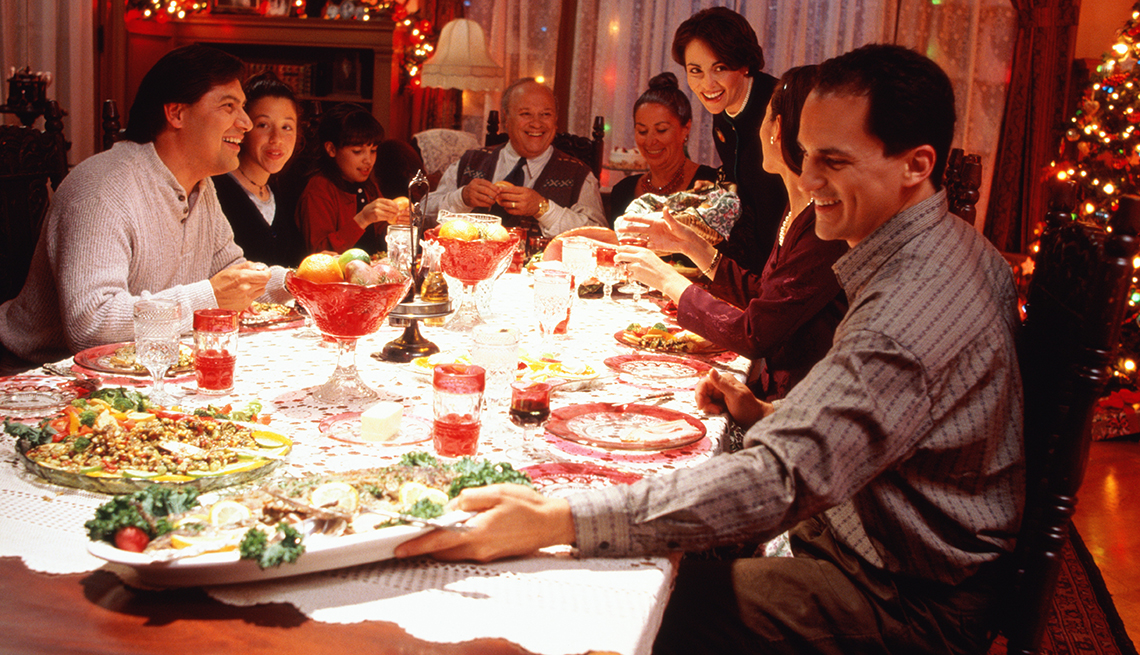Staying Fit
It doesn’t matter whether it’s Hanukkah, Kwanzaa or Christmas, many people feel pressure to maintain family holiday traditions — be it dusting off the usual recipes, bringing out your mother’s china, or traveling to have dinner at grandma’s house.
“Holidays are infused with expectations. I think this is part of what gets us in trouble,” says Michelle Baumgartner, an integrative psychotherapist with Sutter Health in the San Francisco Bay Area. “If you think about the Hallmark Christmas or the Hallmark holiday, there is some pressure to live up to some idea of what a holiday or tradition means.”


AARP Membership— $12 for your first year when you sign up for Automatic Renewal
Get instant access to members-only products and hundreds of discounts, a free second membership, and a subscription to AARP the Magazine.
Sometimes we want to change the pattern — maybe there’s a new baby in the family and travel to the usual holiday host’s home becomes more difficult, or you’re tired of the same roast beef every year. As we age, roles shift; often family members in the younger (or sandwich) generation want to start their own traditions.
For more family advice and entertainment news, get AARP’s monthly Lifestyle newsletter.
But something as seemingly simple as changing what’s for dinner can create unexpected angst and stress during the holiday season, Baumgartner notes: “Foods are important, and if certain foods didn’t show up or didn’t get made, or [deciding] let’s go out for dinner this year instead of making dinner, some people are going to like that, and some are not.”
It doesn’t help that we’re already often under more stress in general this time of year, points out Mason Turner, a psychiatrist with Kaiser Permanente in Hawaii, “so we enter into the season already primed for conflict.”
A few ways to sensitively break with tradition when family members might be resistant:



































































